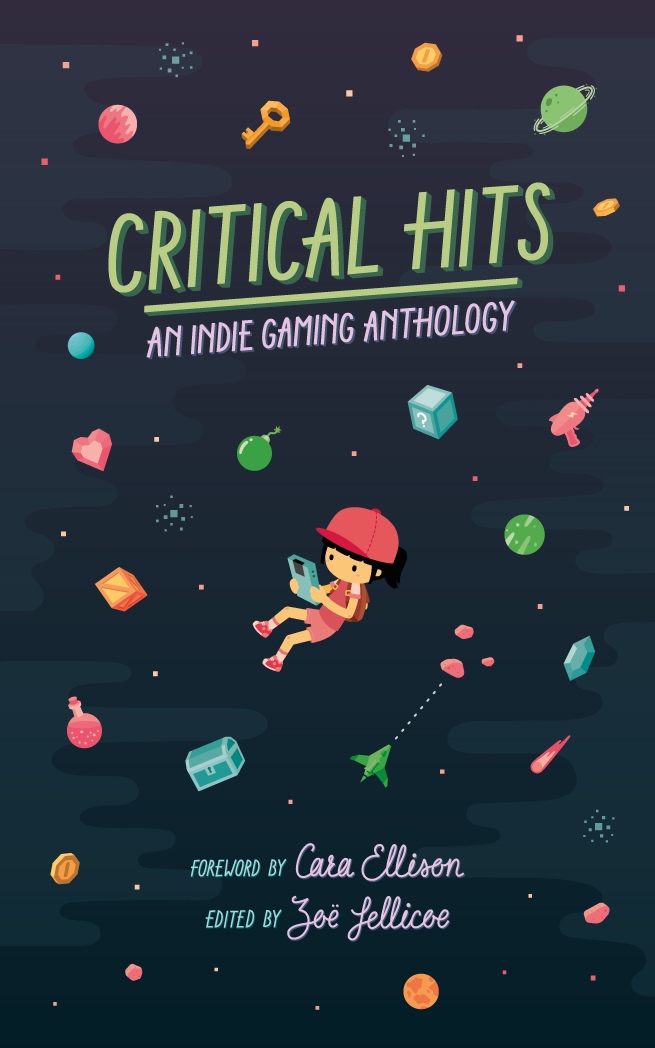Critical Hits: An Indie Gaming Anthology was recently brought to my attention by a fellow English literature graduate from my university days. How it managed to slip under my radar, I’m not quite sure, but I feel these circumstances perfectly encapsulate everything this book is.
Critical Hits is for the thinking gamer. It’s a collection of essays from a variety of industry writers, some of which come from backgrounds in development, others from a more journalistic perspective. Each essay focuses on some element of the independent games scene, covering a range of topics ‘from spatial design and existential fear, the popularisation of roguelike games, procedural generation, mothering spaces in games, the representation of dating and text-based mechanics and more‘.
 You can count me in! In fact, I’ve already put down money for one of the 800 copies the project will produce, and they will be produced. Critical Hits has already surpassed its €3,500 by just over €1,000. There’s still time to secure a copy for yourself, but the clock is ticking, with roughly two days left until the campaign ends.
You can count me in! In fact, I’ve already put down money for one of the 800 copies the project will produce, and they will be produced. Critical Hits has already surpassed its €3,500 by just over €1,000. There’s still time to secure a copy for yourself, but the clock is ticking, with roughly two days left until the campaign ends.
If you’ve read and enjoyed academic writing on videogames before (such as Tom Bissell’s fantastic Extra Lives), you’re bound to find some kind of merit in Critical Hits. On the other hand, if you’ve never picked up a book on the industry before, this could very well be a memorable place to start. Critical Hits will have a limited run, and sadly there aren’t too many books like this in stores, so you might want to consider making the most of this opportunity before it passes. Head to the project’s Kickstarter page for more information.



It’s crazy how far indiegames have come since I started covering them in 2000. Back then it was just match three games and the occasional mini adventure, now it’s a scene that arguably more vibrant than mainstream games.
It’s certainly more creative than the AAA scene! It seems to have become something of a testbed for zanier ideas that can then be adopted and refined by the bigger studios. Consider how broad the appeal of mainstream gaming is compared to how it was 10 or 20 years ago. More people are becoming gamers, and so more people are becoming developers, hence the growth of the scene. That’s my theory, in any case!